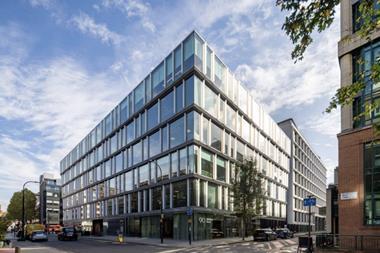Long-term investors ensure sustained, robust demand for German residential but investment volume will be well down on last year. Christian Schulz-Wulkow reports
The financial crisis has not hit Germany nearly as hard as many other countries. Most market participants continue to show a lively interest in the German real estate market, as indicated by the 2008 Real Estate Investment Market Trend Barometer by Ernst & Young. Interestingly, ‘residential' is a sector that figures large in planned investments.
Trend Barometer interviewed about 100 German companies - open-ended property funds and holding companies, housing companies, banks, insurance companies, family offices, public companies, project developers - on their view of the German real estate investment market in 2008. More than 90% of respondents consider Germany a rather robust and attractive real estate market within the European context. Some 70% of them believe that Germany will retain its attractive investment
environment.
This year, investment volume will remain at a very high level, even though the crisis on the financial market and the increasingly restrictive financing conditions for large real estate transactions will most likely cause it to fall 25% on last year - a total volume of €60bn, residential real estate transactions and NPL transactions included, and thus substantially less than the €74bn of 2007.
The principal reason for the reticence of some investors is the financial market crisis. Nearly three out of four respondents feel influenced in their investors' behaviour by the changes we have seen in the capital markets. At the same time, many consider the current market environment something of an opportunity due to lower purchase prices, increased initial yields, and fewer competitors. More than others, high net worth investors have an obvious advantage in today's market environment.
About two thirds of all polled investors believe that open-ended property funds in particular will make a stronger showing as buyer groups. By contrast, about 77% of the respondents believe that opportunity and private equity funds will be in the buyer's role much less frequently. More than 60% also expect banks and housing companies to downscale their buying activities.
In the residential sector in particular, equity-based investors with long-term outlooks will ensure a sustained, robust demand in 2008. Transactions will most likely remain stable - with a volume that we forecast at approximately €11bn. In the portfolios of these investors focusing on core investments, Germany is still frequently underrepresented in relation to its economic significance. Moreover, investors who take an interest in German residential real estate are counting on the rental growth predicted by numerous experts, especially in conurbations.
As early as last year, we saw a growing number of companies that tend to concentrate on core investments content with lower yield expectations and inclined toward investment horizons longer than those of the first-wave foreign investors. Those financial investors who are not pursuing exit plans via an IPO have begun to engage in pinpoint sales of single properties from their portfolio deals to just such long-term investors.
In fact, according to the survey, 54% of the investors currently assume that their exit strategy will take a direct sales approach. In spite of today's low share prices, 20% of the polled companies continue to consider an IPO as an exit option in the medium term.
Of last year's transactions in the residential sector, share deals accounted for 65% of the volume. The public sector ceased to sell major volume, apart from a few exceptions.
Both generally speaking and specifically in the residential sector, there is a clear trend toward smaller and mid-sized transaction volumes. Portfolio transactions of €500m and more will become rare.
Some 98% of respondents expect returns in Germany's real estate market to remain the same or rise this year. Residential property will be significant in planned investments, although commercial real estate will dominate the market then as now. A clear majority of respondents believe that properties, particularly in top locations, show further appreciation potential; on the whole, it is striking to see that the German real estate investment market manifests strong differences among its regional markets.
Certain economically dynamic regions will continue to attract investors in the future, whereas other regions will stimulate less interest. More than anything else, this is because of migration.
Most of the polled investors do not plan to alter their set holding periods from what they were last year. A mere 7% stated they would shorten the prospective holding periods for their real estate investments this year. By contrast, 84% described their holding strategy as constant. Against this background, investors will continue to generate demand for professional asset and property management services to raise the expected capital growth potential.
It has been a lingering issue in this context that while an increasing number of German service providers offer asset management services, not all of them are actually able to meet the investors' requirements.
What is more, investors are well advised to check whether a given provider of asset management services satisfies the owner's standards of transparency and informative, speedy reporting.
Christian Schulz-Wulkow is a partner at Ernst & Young Real Estate GmbH in Berlin, and head of M&A Capital Market Services Deutschland












